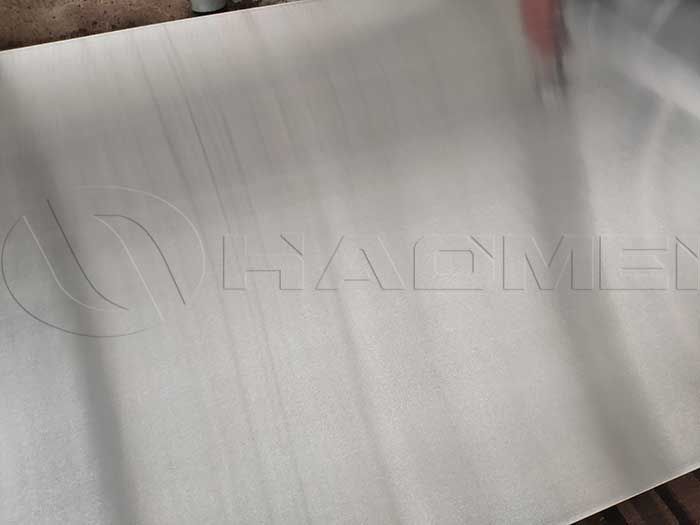Aluminum Sheet for EV Automobile
Publish Time: 2022-05-19 Origin:https://www.hmaluminumsupply.com
The density of automotive aluminum is small (2.7g/cm³), which is about 1/3 of that of steel (7.8g/cm³). Aluminum replacing steel can reduce the weight by about 50%. Since the surface of aluminum is easily oxidized to form a dense and stable oxide film, it has good corrosion resistance.
Aluminum alloys are formed by adding one or several elements to aluminum. Compared with pure aluminum, aluminum alloys can improve the strength and hardness. In addition to solid solution strengthening, some aluminum alloys can also be strengthened by heat treatment, so that the tensile strength of some aluminum alloys can be improved over 600MPa.

Automotive aluminum heat treatment classification
Annealing
The aluminum is heated to a certain temperature and kept for a certain period of time and then cooled to room temperature at a certain cooling rate. Through atomic diffusion and migration, the organization is made more uniform and stable, and the internal stress is eliminated, which can greatly improve the plasticity of the material, but the strength will be reduced.
Solution quenching treatment
The aluminum alloy material is heated to a higher temperature and kept for a certain period of time, so that the second phase or other soluble components in the material are fully dissolved into the aluminum matrix to form a supersaturated solid solution, and then the supersaturated solid solution is formed by rapid cooling. At this time, the material has high plasticity and can be cold worked or straightened.
Aging
The material after solution quenching is kept at room temperature or higher temperature for a period of time, the unstable supersaturated solid solution will decompose, and the second phase particles will be precipitated (or precipitated) from the supersaturated solid solution and distributed in α (Al ) around the aluminum grains, resulting in a strengthening effect called precipitation (precipitation) strengthening.
Aluminum alloys for automobiles
Both cast aluminum alloys and deformed aluminum alloys have been used in automobiles, but the former is the main one. At present, aluminum alloy castings are mainly used to manufacture engine parts, casing parts and other parts on the chassis.
Deformed aluminum alloys are suitable for press working, and their strength can be further increased by cold deformation and heat treatment. Deformed aluminum alloys are mainly used in automobile bodies like hood, roof, doors, fenders, trunk lid, floor, body frame and coverings. The main aluminum alloys are 2000, 5000 and 6000 series like 6061 aluminum sheet.